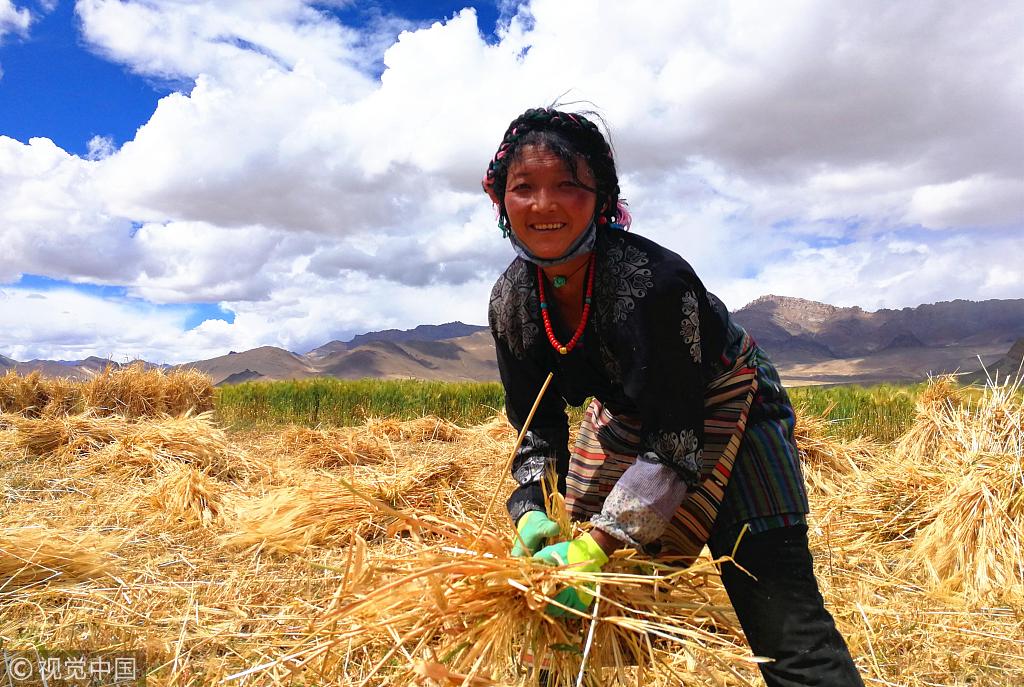Poverty relief money lifting poorest regions
By Li Lei | China Daily | Updated: 2019-06-27 09:22

China's allocation of 105 billion yuan ($15.2 billion) to lift people out of poverty in the country's least-developed regions is already producing strong results, a senior official said on Wednesday.
The recipients of the funds, disbursed from last year until 2020, include the Tibet autonomous region, the Xinjiang Uygur autonomous region and several prefectures in Qinghai, Sichuan, Yunnan and Gansu provinces.
The regions have long been regarded as the major battlefields in the government's efforts to eradicate absolute poverty nationwide by the end of next year.
Ou Qingping, deputy-director of the State Council Leading Group Office of Poverty Alleviation and Development, said the 105 billion yuan accounted for nearly half of poverty reduction funds nationwide. He said it was an indication of the huge importance the central government attached to poverty alleviation in those areas.
"Our goal is that no one is left behind by 2020," he said at a news conference, after poverty relief officials from the regions gave briefings on their recent progress.
Figures provided by Ou's office showed 4.8 million people in the regions shook off poverty last year, 38 percent of the national total. The poverty rate dropped 4.9 percentage points in the same year, faster than the national average.
The money has been used to build roads and schools, repair unsafe housing and train farmers who have limited working skills.
Ou said 76,400 private companies were involved in an assistance program to help nearly 50,000 villages still in poverty.
The poverty line in China, set in 2010, is defined as yearly income of 2,300 yuan, adjusted for purchasing power parity.
Xiang Guiyu, head of Liangshan Yi prefecture in Sichuan province, said the poverty rate has decreased significantly from 19.8 percent in 2013 to 7.1 percent last year.
"Across the prefecture, 659,000 farmers shook off poverty during the period," he said, adding that 11 billion yuan was pumped into projects over that period, boosting road connectivity for poor villages and another 27.1 billion was invested in new residential areas that received 485,000 migrants from impoverished areas.
Ou said alleviating poverty in these regions remained a challenge as 6.27 million people were still poor, accounting for half of the nation's total.
























